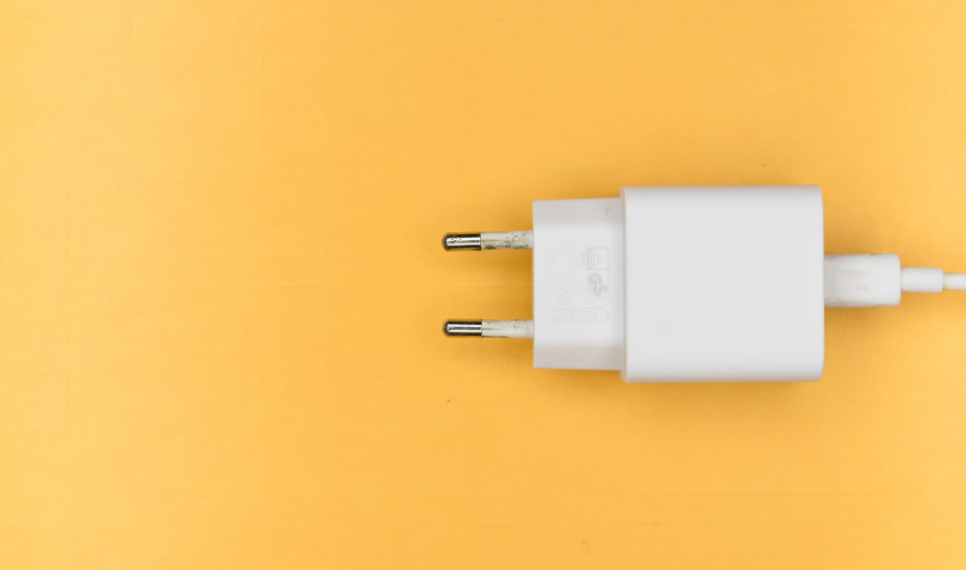Growing up, my parents always encouraged hard work.
I started my first job—a paper route—at age 12. I had to wake up at 5am and used my roller blades while my dad drove our old yellow station wagon with the hatch open and all the newspapers in the back. I’d hang on to the car while he drove, grab some papers and skate up a driveway, then head back to the car for another load.
It was hard work—365 days of the year—but I have fond memories of it.
Then I moved to bussing tables and snowboard shops when I got my driver’s license, and eventually progressed to barista jobs at fancy events in Santa Barbara while I was in college.
During grad school I often worked from 8am to 4pm, then went to school from 4pm to 10pm several days per week—sometimes picking up the midnight to 8am shift at local psychiatric hospitals to learn more about severe mental health disorders.
I continued these work habits after I graduated. One job I had announced to applicants, “We do working lunches here and work a straight 8-hour or 10-hour shift.” No lunch break? Go home earlier? Sounded good to me.
Any of these work habits sound familiar? Many of us work this way because it has been the model of hard work for us to follow.
But there is a better way.
Not all work, especially work that requires deep focus and hard thinking, benefits from the “just work harder and longer” strategy.
Many of us are working in a way that attempts to violate the fundamental operating system principles of our brains.
Today we are going to look at research from modern neuroscience and cognitive psychology that helps to explain why the way many of us work is often exhausting and ineffective. We often work in such a way that does not get the best return on investment for our precious time.
We will also look at four strategies (based on research) that you can use to work with much greater impact and efficiency.
Do you want to get things done faster, see better results, and feel less exhausted at the end of your work day?
Then read on.
Principle #1: Remind yourself every year, every week, and every day, what is supremely important
In the late 1800s, the chairman of political economy at the University of Lausanne in Switzerland published an obscure paper entitle “The law of income distribution,” which demonstrated a grossly disproportionate but predictable distribution of wealth in a society. He discovered that about 80% of income was produced and held by only 20% of the population.
After writing this paper, he strangely discovered that his garden even seemed to behave the same way. He discovered that a small minority of his pea plants were producing the majority of his peas. His name was Vilfredo Fritz Pareto. You might recognize his name from The Pareto Principle, otherwise known as the 80-20 Rule. Authors and philosophers have explored the implications of this principle for the past 100 years.
Why is this so important?
Because the sheer number of potential choices and distractions we face in the modern world has increased to an insane level. And the busier we become, the worse we are at selecting the most important tasks. In fact, when we become overwhelmed or exhausted, our brains default to picking low value work.
If we don’t tell our brains what is most important each day, we quickly become distracted by every single text, email, or instant message that comes our way. We don’t stand a chance. If this topic interests you, I highly recommend psychologist Barry Schwartz’s book or Ted Talk, The Paradox of Choice. You can also read the New York Times article entitled, “Why your brain tricks you into doing less important tasks.”
Years ago, my executive coach had me write a life plan, a one-page business plan, and an ideal week calendar. Using these three tools has helped me to stay focused on what matters most, at work and at home. See my other posts on those tools.
Principle #2: Schedule your highest value tasks into your brain’s best time of day
How many hours of good, focused thinking does your brain have each day? Less than you would think. After looking at research on this topic, it seems that most people are capable of three to five hours of concentrated thinking per day. For more detail on these studies, I recommend Cal Newport’s book Deep Work or Stanford’s Alex Pang’s book entitled Rest.
Additionally, the quality of decisions that we make usually degrades as the hours of the day go by. One famous study in 2011 looked at judges and their decisions about whether to grant parole to prisoners. They found that the first prisoners seen by the judge at 8am in the morning had a 65% percent average chance of being granted parole. By the end of the day at 4pm, their chances of being paroled dwindled to almost zero. Their brains were simply too tired to think about such difficult decisions late in the day. Other studies have looked at doctors and found that they order 10-15% less colon and breast cancer screenings late in the day, prescribe 26% more unnecessary antibiotics late in the day, do less influenza vaccines late in the day, and prescribe the most opiate pain medications around 4pm.
Ever finished a day of 10-hour meetings and find it difficult to form a coherent sentence or remember one of your kid’s names? If so, don’t worry, you’re not getting early dementia, you are simply working against the basic operating principles of your brain. You’ve been trying to fight biology.
For most people, your brain is at its best from about 9am to noon. There are exceptions to this, so pay attention to when you feel your sharpest and try to do your hardest work or most important meetings during that window of the day. If you have a critical decision late in the day, it’s best to sleep on it and see if you see a new perspective in the morning.
Principle #3: Schedule consistent breaks and recovery time every year, week, and day
Studies consistently show that when we fail to take breaks, our productivity and performance goes down.
One study from Harvard showed that taking more than 10 days of vacation per year increased chances of a raise or promotion by 34%.
In an often-cited study conducted by the Draugiem Group, researchers used computer software to analyze the optimal work-rest ratio and found that 52 minutes working with a 17-minute break was ideal for productivity. If you want the simple version, just take a break for 10-15 minutes about every hour.
In a 2018 Forbes article entitled, Employee Engagement and the Long-Lost Lunch Break, 90% of survey participants said a lunch break (with healthy activities) increased productivity, well-being, job engagement, job commitment, and creativity.
And finally, the famous Blue Zones studies hypothesized that the reason Loma Linda residents frequently lived past the age of 100 was due to their strict observance of a Sabbath rest day every single week.
The bottom line is to force yourself to take breaks according to these studies so that you can be at your best over the long haul.
Principle #4: Keep eliminating low value tasks
This is probably going to be the hardest one for most people.
In order to fight chronic busyness and distraction, you have to keep subtracting all the low value crap that comes into your atmosphere. And this is hard. Really hard. First, you actually have to have time to think about what is low value, then take time to eliminate it, then keep eliminating regularly because of our tendency to accumulate stuff.
Professor Leidy Klotz has written an amazing and highly scientific book packed with studies about how our brain has a natural tendency toward additive solutions. His book is appropriately titled: Subtract, The Untapped Science of Less. In it, he masterfully demonstrates how the human brain systematically overlooks subtractive solutions.
In other words, it’s very difficult for us to subtract things. This might be because for thousands of years, scarcity was one of the biggest problems for humans. We spent most of our time trying to find food in order to stay alive, so perhaps this explains why getting rid of stuff is so darn difficult.
Are you one of those people who keeps buying new organizing widgets for your garage or closet? These things always seem neat until we quickly overstuff those too. The real solution is much simpler: get rid of some of it!
When it comes to our weekly work schedule, we must keep eliminating low value tasks, projects, or meetings. And for the sake of repetition, for most people the number one time waster is email.
What are we left with when we keep eliminating all this low value stuff? Some really important projects, meetings, or people that get our very best time and energy. And this type of work usually leaves us feeling more fulfilled, with more energy, and getting better results to boot.
Have a great weekend!
Parker
Want more resources?
- Essentialism by Greg Mckeown
- Deep Work by Cal Newport
- Rest by Alex Pang
- Subtract by Leidy Klotz
- The Paradox of Choice by Barry Schwartz




